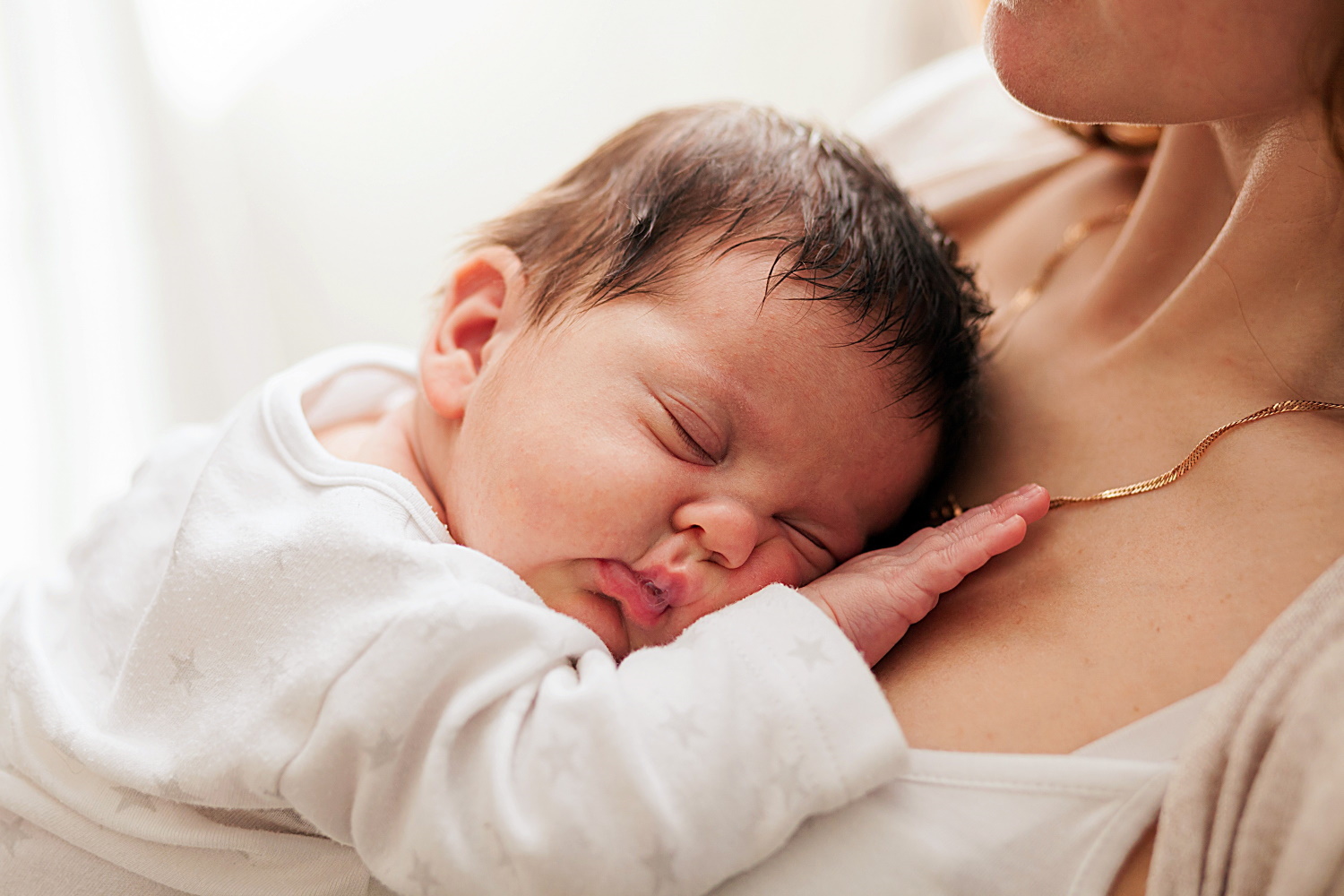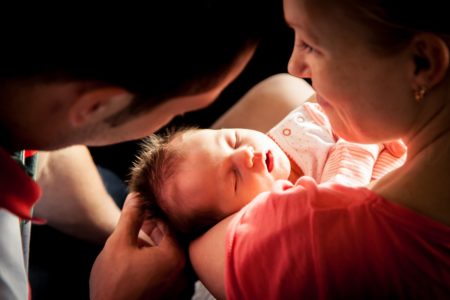Some children need more warmth, hugs, closeness and patience. They are sometimes called High Need Babies. Nothing is wrong with them. But their parents need understanding and support.
People call such children “cry-babies”. They even cruelly call them “brats” who keep bawling and (!!!) terrorizing the parents. I like the term I learnt from my colleague, a psychologist: the unhugged children. The term also provides the solution to the problem: an infant who keeps crying can be hugged. The only thing is that these babies need to be hugged much longer than you’d expect.
HNB
Mothers of “fussy” babies sometimes call each other high-needs mums. “I am a mom of a high-need” and everything’s clear. It means that you’re making a sandwich with one hand while holding the baby with the other. It means that you can’t put your baby to bed in the evening and spend it with friends. Either you go to bed with your child, or you are with friends, but accompanied by a warm cuddly creature sleeping on your stomach.
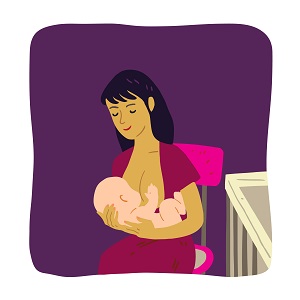
It’s so hard to part
Children like that are “inseparable”. They fall asleep while feeding, so you want to free yourself from the sweet burden to do something else: go to the bathroom, cook something, do the laundry, or even stretch.
Slowly, like a tai-chi master you get up with the child at your breast and like in a slow-mo film you move towards the cot. Bending over the mattress takes hours,you’re holding your breath to avoid any noise. Somehow you win the fight with gravity and the baby slowly moves on your hands towards the bed. You don’t believe your luck: they didn’t wake up!
You’re still holding your face close to theirs, so the sudden displacement of air doesn’t wake them up. Finally, like a martial artist from “Crouching Tiger, Hidden Dragon,” you gracefully move towards the door. And then, when you allow yourself to think that you’ve won 15 minutes for yourself, you hear crying.
Criticism
Family and friends take turns to either sympathize or criticize. Some believe it’s your fault: you’ve conditioned the child to be carried and hugged, so don’t complain now.
They’re wrong.
Over 9 months of pregnancy the baby got used to rocking, swinging and warmth. Naturally, each child was in a womb, but not each wants to be carried all the time (although most do). But children are different and adapt to life after birth in different ways. They sensitivity to external stimuli also varies. Some need more peace, and a parent’s touch and closeness are the best pacifiers.
Uncanny intuition
If you have a little high-needs, try ignoring other people’s opinions and focus on what your intuition tells you. Nature gave you that wonderful tool to help you ready our baby’s needs. And it’s not about a kind of magic – a mother’s and child’s emotional synchronization is a scientifically proven fact. In the early stages of motherhood, the mother’s right brain hemisphere, responsible for empathy, is especially active. The mother really knows more about her child’s needs than outsiders.
However, outsiders – kind, wise and supportive – are also useful. It should be someone who knows you well, but also understands what motherhood is and how children develop. It is good to have a person like that around. Why? For two reasons.
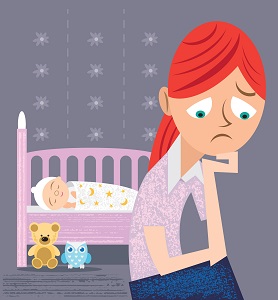
Empathy gives strength
A close, supportive person provides something both simple and needed: empathy. They can tell you: I see how hard you’re trying; it must be tough for you; you can tell me; I’m not judging, just supporting. It’s important to tell someone what each mother feels even if she tries to ignore the thought: sometimes I’m completely fed up. Motherhood is usually discussed in terms of catharsis, happiness, love and sweetness. But each loving mum is also a tired human being whose needs should be fulfilled too. She’d like to rest, regenerate, return to her oldlife. Especially the mother of an “unhugged” child. Her attention is always on the child and this sucks out the energy really fast.
See yourself in a mirror
The second reason why in the early motherhood you should have someone who can look at things from a distance is that parents, as we all, need feedback. A sympathetic friend can be a “mirror” that will show us our mood and condition.
The thing is, children look at their mother’s face and it tells them if they’re safe. The mother’s face and eyes tell them if they should worry about anything. If their mum’s face is tense and anxious, if there is fear or sadness in her eyes, they feel threatened. Infants are really sensitive to this. They notice if their mother smiles for show while feeling afraid inside, or anxious, lonely, or sad.
Don’t be embarrassed to ask for help
Being a mother, especially a mother of a child who needs constant attention, is very difficult. It’s a job you can’t really stop doing, so you need support,understanding, help. Ask for it. If something is difficult for you – talk about it with someone you trust. Sometimes you need a therapist’s support.
You should also realize that almost 20% of mothers suffer from postpartum depression. It must be treated, through therapy or sometimes with medicines, some of which are safe for breastfeeding. It’s very difficult for a person suffering from depression to build a relationship with their child.
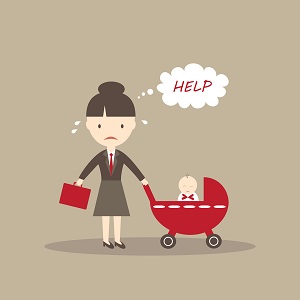
High Need Babies are great
Back to High Need Babies: if you have such an “unhugged” baby, don’t worry about that. React to their needs as your intuition tells you. Support them, provide security. Let them bask in closeness and love. Such children, hugged and understood, grow to be wonderful people. Very often they need a lot of closeness and understanding during the first years of their lives, and then they go on onto the next stage of development. Filled with love and unconditionally accepted by their parents, they have high self-esteem. They might be sensitive and careful, but they cope well with challenges.
If you need to be understood and look for support, search for other HNB parents on the Internet. Read “The Fussy Baby Book” by Martha and William Sears, who began the Parental Attachment movement. They also faced the challenge a High Need Baby posed. They know the HNB issue both as parents and as experts (a nurse and a paediatrician).
Every day,tell yourself that you’re a good parent. Take care of yourself. Remember that your smile and peace are the key to your child’s happiness.


